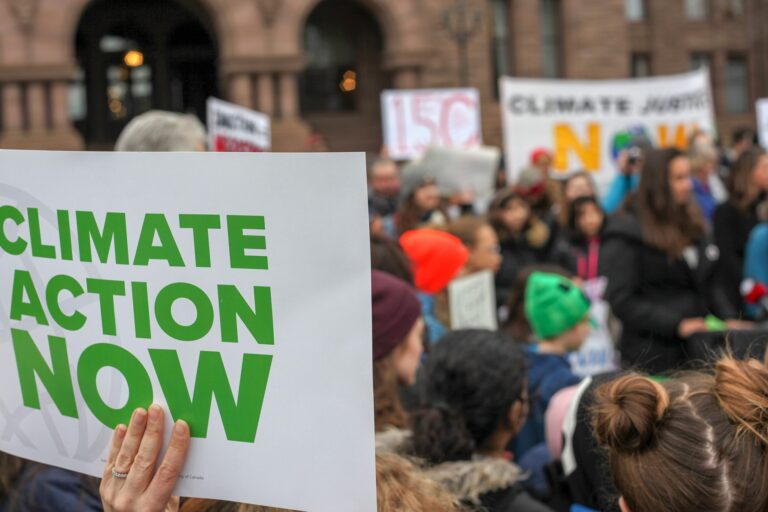
This Women’s History Month, we want to shed light on some of the environmentalist women who have had an outsized yet widely underappreciated impact on the environmental movement around the world. These women have advocated and fought for communities disproportionately impacted by the climate crisis across continents and here at home.
Many of these women are still fighting in the environmental justice movement to this day. Still, each and every one of their legacies has and continues to inspire us. The contributions of Black, Indigenous, and women of color have made an undeniable impact on the fight for climate justice.
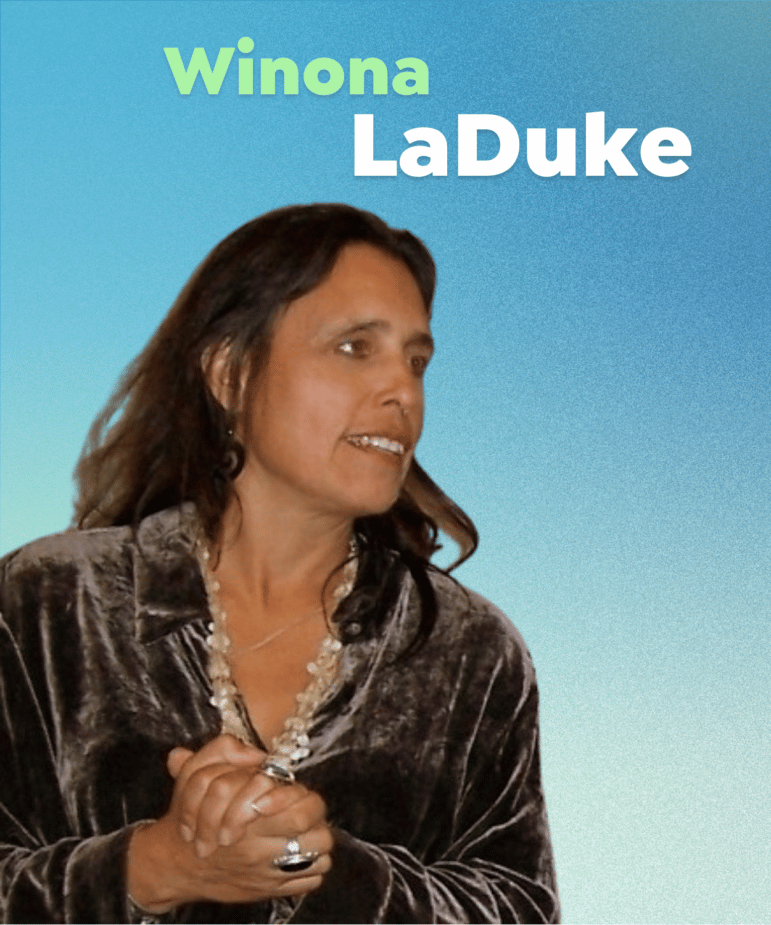
“Ojibwe prophecy speaks of a time during the seventh fire when our people will have a choice between two paths. The first path is well-worn and scorched. The second path is new and green. It is our choice as communities and as individuals how we will proceed.”
Winona LaDuke is an Ojibwe Tribe member and environmental justice advocate who has dedicated her life to combating the climate crisis and fighting for Native land rights. She is the executive director and co-founder of Honor of Earth. Honor of Earth is a Native environmental advocacy organization that played an integral role in the 2016 Dakota Access Pipeline protests. LaDuke ran for Vice President in 1996 and 2000. And in 2016, she became the first member of the Green Party and the second Native person to receive an electoral vote for Vice President. LaDuke founded the White Earth Land Recovery Project. This is a grassroots organization that seeks to recover land for the Ojibwe people on the White Earth Indian Reservation. It also develops programs that promote sustainability and environmental preservation.
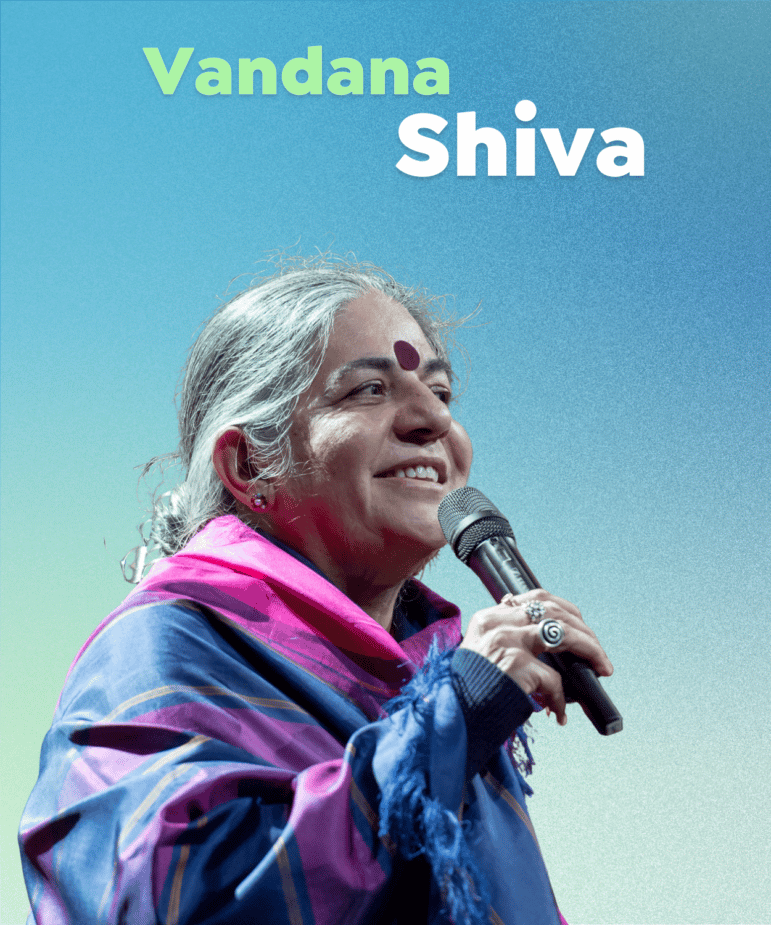
“In nature's economy the currency is not money, it is life.”
Vandana Shiva is a physicist who shifted to interdisciplinary research in science, technology, and environmental policy. She has had a huge impact on agroecology and food sovereignty advocacy. Shiva is the recipient of many awards, including the Right Livelihood Award, also known as the “Alternative Nobel Prize.” She founded the Research Foundation for Science, Technology, and Ecology to address ecological problems in 1982. In 1990, she founded Navdanya in defense of biodiversity and small farmers. In 2011, this movement went global when Navdanya International was founded in Italy. Alongside the President of the Region of Tuscany, she co-founded the International Commission on the Future of Food and Agriculture. Additionally, Shiva serves on the board of the International Forum on Globalization. And lastly, she is a member of the executive committee of the World Future Council.

“Wherever the struggle is...there is one thing in common: the voracity of the transnational corporations and the ambition of these non-persons who govern us who give away to business the richnesses that belong to everyone.”
Berta Cáceres was a Lenca woman from Honduras. She led campaigns on a wide variety of issues, including protesting illegal logging, plantation owners, and the presence of U.S. military bases on Lenca land. Cáceres was the co-founder and coordinator of the Council of Popular and Indigenous Organizations of Honduras (COPINH). In 2015, she won the Goldman Environmental Prize for her work defending the Gualcarque River, its surrounding environment, and people from the Agua Zarca Dam. Tragically, armed intruders assassinated her in her home in 2016. Three of the eight people arrested in connection to her murder were linked to U.S.-trained elite military troops. Two other activists were murdered in the same month, making Honduras the most dangerous country in the world for activists protecting forests and rivers.
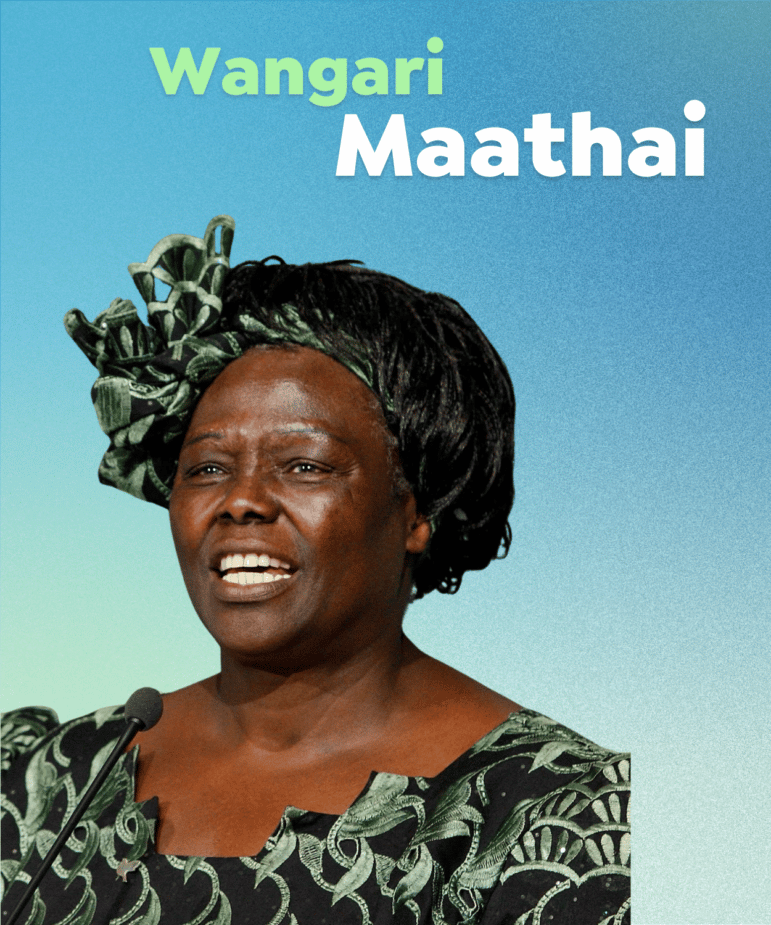
“The generation that destroys the environment is not the generation that pays the price. That is the problem.”
Wangari Maathai was a Kenyan environmental and political activist. In 1977, she founded the Green Belt Movement, an organization focused on the planting of trees, conservation, and women’s rights. By the 2000’s the organization planted over 30 million trees, created jobs, and secured firewood for rural communities. Maathai was elected to the Parliament of Kenya in 2003 and appointed Assistant Minister in the Ministry for Environment and Natural Resources. In 2004, she was awarded the Nobel Peace Prize for her fight for women’s rights, the politically oppressed, and the environment. Maathai was also an Honorary Councillor of the World Future Council.
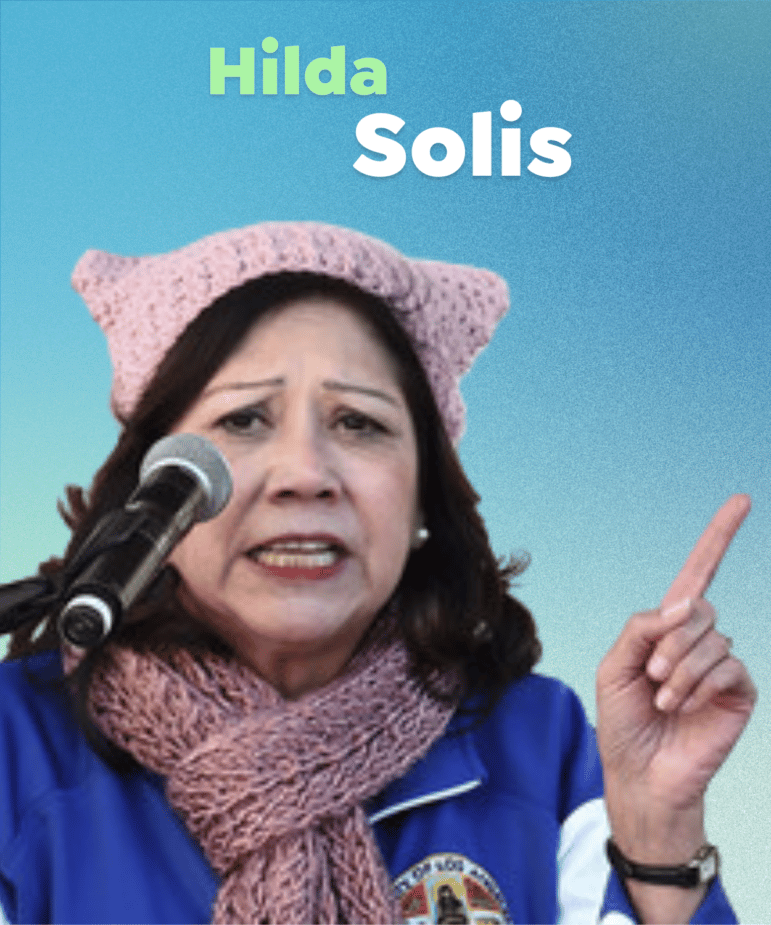
“Fighting for what is just is not always popular, but it is necessary; that is the real challenge that public servants face, and it is where courage counts the most.”
Hilda Lucia Solis has committed her career in public service to being a strong advocate for labor and environmental justice. As Los Angeles County Supervisor in the First District, she has successfully lobbied for the state to clean up the Exide battery plant. Growing up by the Puente Hills Landfill in Los Angeles, Solis has championed environmental policy while on the Committees on Energy and Commerce, Natural Resources, and Energy Independence and Global Warming. She became the first Latina to serve in the California State Senate, where she sought to pass environmental justice legislation in 1994. She was the first female recipient of the John F. Kennedy Profile in Courage Award in 2000 and became the first Latina to lead one of the U.S. federal executive departments as Secretary of Labor in 2009.
Share this blog!
Now you can find out with our 2023 California Environmental Scorecard! Use it to see how California’s leadership scored, how many legislators take dirty oil money, and much more.
Share this blog!

